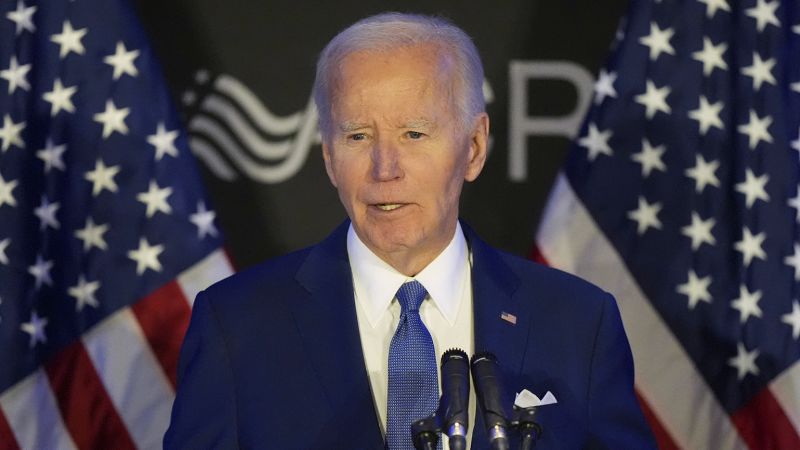In a recent interview with BBC Radio 4, former President Joe Biden expressed his strong criticism of Donald Trump’s views on the ongoing conflict in Ukraine. Biden took particular issue with Trump’s implication that Ukraine might need to surrender territory to Russia in the interest of achieving peace. He characterized this notion as a “modern-day appeasement,” drawing an unsettling parallel to British Prime Minister Neville Chamberlain’s attempts to placate Adolf Hitler during the 1930s as war loomed over Europe.
Biden articulated his disbelief that some individuals might think that ceding land to an aggressive dictator like Russian President Vladimir Putin could lead to a resolution of the conflict. In his words, he remarked, “I just don’t understand how people think that if we allow a dictator, a thug, to decide he’s going to take significant portions of land that aren’t his, and that’s going to satisfy him.” This statement reflects a deep concern about the repercussions of allowing authoritarian leaders to dictate terms without facing consequences for their aggressive actions.
Furthermore, Biden expressed disappointment regarding Trump’s treatment of Ukrainian President Volodymyr Zelensky. The former president referred to Trump’s behavior in a tense Oval Office meeting earlier this year as “beneath America,” implying that it was inappropriate for a sitting president to exhibit hostility toward an ally facing existential threats. He underscored the values America stands for—freedom, democracy, and opportunity—contrasting these ideals with Trump’s perceived fixation on territorial expansion, notably in concerns about the Gulf of America along with the desire to acquire territories like Panama, Greenland, and even Canada.
As the interview continued, Biden addressed a broader existential question about democracy in the modern world. When asked if he believed there existed a greater threat to democracy now than at any other time since World War II, he responded with a resounding affirmation. He highlighted the uncertainty among European leaders regarding the reliability of the United States as an ally. This uncertainty is particularly poignant in the light of recent geopolitical tensions and the implications they have for international stability and collaboration.
Biden was also asked if he perceived Trump as behaving more like a king than a traditional president. In his response, he stated, “He’s not behaving like a Republican president.” Reflecting on Trump’s presidency, Biden suggested that history would ultimately be the judge of Trump’s actions, stating that he has yet to witness anything “triumphant” from that administration within its first 100 days.
In his analysis of the current political situation in the United States, Biden expressed a slightly optimistic viewpoint regarding the Republican Party. He noted a growing awareness within the party about the ramifications of Trump’s leadership and actions, which, he believes, could signal a shift toward more traditional Republican values and approaches.
As the conversation turned to Biden’s own political career, he was queried about the 2024 campaign and whether he believed he should have exited earlier. Biden indicated that he felt that such a decision would not have significantly altered the outcome. He explained that the circumstances at the time: a strong candidate in place and a successful agenda laid groundwork for a robust campaign. However, he acknowledged the rapid developments in politics made it challenging to step back, leading to a difficult decision concerning his continued participation in public life.
Throughout his presidency, Biden has faced the ongoing challenge of the war in Ukraine, working diligently to gather support from European allies and mitigate Russian aggression through sanctions. His administration’s commitment is evident, having approved over $65 billion in aid to Ukraine since the conflict escalated in 2022. This support aligns with Biden’s philosophy of leadership through diplomacy and coalition-building in the face of authoritarian threats.
The BBC interview marks Biden’s first public engagement since leaving office and coincides with significant historical reflections, such as the 80th anniversary of Victory in Europe Day, commemorating the end of World War II. After a period of relative quiet, Biden has begun to speak out again, reiterating his concerns about the policies rolled out by the Trump administration, particularly in regard to Social Security, labeling the early actions of the current administration as damaging and surprisingly destructive. As he continues to assert his views, it remains clear that Biden is positioned to maintain a voice in the public discourse on issues of democracy and international relations.



